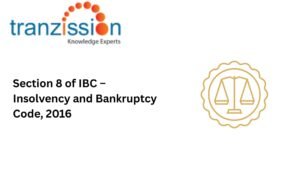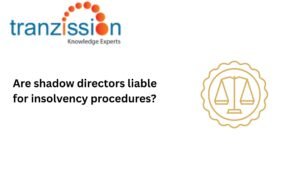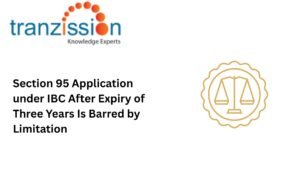
How to Challenge an Order of Admission in CIRP

Table of Contents
The corporate insolvency resolution process (CIRP) is a structured legal framework used to resolve the financial difficulties of a company, aiming to either restructure the company or liquidate it if restructuring fails. The Order of Admission in CIRP process involves a creditor or the company itself filing an application with the National Company Law Tribunal (NCLT), which then decides whether to initiate the CIRP. If admitted, a moratorium is imposed under section 14, halting legal actions and transfers of assets, followed by claims verification, appointment of a resolution professional (RP), and ultimately, a viable resolution plan.
Read more : Common Misconceptions About the IBC
Grounds for Challenging an Order of Admission in CIRP
An admission under the IBC can be challenged on various grounds, including:
- A genuine dispute exists regarding the debt claimed to be in default.
- There are procedural irregularities during the admission process.
- Allegations of fraud, collusion, or malicious intent are raised during the CIRP.
- The creditor has filed to provide sufficient evidence to establish that a default has occurred.
- The corporate debtor or its authorised representative’s failure to acknowledge the debt.
- Concealing vital facts, such as the pendency of an appeal against the admission order.
- There are jurisdictional errors by the NCLT.
- There is a violation of principles of natural justice
Who Can File an Appeal?
Section 61 of the IBC states that ‘any person aggrieved by the order of the Adjudicating Authority’ can prefer an appeal to the National Company Appellate Tribunal (NCLT). Hence, the corporate debtor , financial or operational creditors , shareholders and directors and resolution professionals can file an appeal.
Procedure to Challenge an Order of Admission in CIRP
To challenge an order of admission, an aggrieved party can file an appeal to the NCLAT, the process to challenge such an order is:
- Section 61(1) clarifies that any person who is adversely affected by the NCLT’s order will file an appeal.
- The appeal must adhere to the specific guidelines and checklists provided by the NCLAT for filing appeals, including, the NCLT order, supporting documents, financial information, or other documents that the NCLAT might require.
- The appel should clearly outline the grounds for challenging the NCLT’s order, citing any legal orders, factual discrepancies, or procedural issues.
- If the NCLAT’s decision is not satisfactory, an appeal can be filed with the Supreme Court in Section 62, on a question of law arising from the NCLAT’s order.
Timelines and Deadlines Order of Admission in CIRP
An appeal against an NCLT order must be filed with the NCLAT within the prescribed time limit. As per section 61, an aggrieved party has a 30-day period to file an appeal from the date of the NCLT order and possible extension of 15 days if sufficient cause is shown. Strict adherence to timelines upholds the integrity of the IBC and discourages attempts to circumvent the process through delays or manipulation, according to the NCLAT and the Supreme Court.
Potential Outcomes of an Appeal
An appeal under the IBC can result in several outcomes, including:
- The reversal or modification of the admission order
- Upholding the NCLT’s order if it finds that the order was correctly made under the law and supported by the evidence.
- Parties involved in the appeal may reach a compromise or settlement agreement before the NCLAT renders a final decision.
- If the appeal is found to be without merit or filed beyond the prescribed time limit, the NCLAT may dismiss it.
- If a question of law arises from the NCLAT’s order, a party may appeal to the Supreme Court.
Conclusion
The appeal process provides a mechanism for stakeholders to challenge decisions made during the insolvency process if they believe they are unfair or incorrect. This helps ensure that all parties have an opportunity to be heard and that their rights are protected. This process allows for the NCLAT to review decisions made at lower levels, providing an opportunity to correct errors, address inconsistencies, and ensure that the final resolution is fair and efficient. By seeking legal advice from an experienced advocate in insolvency cases, stakeholders can increase their chances of successfully appealing a decision and protecting their interests under the iBC.
FAQs
Can an operational creditor challenge an admission order?
Yes, an operational creditor can challenge an admission order within the 30-day period.
What are the costs involved in filing an appeal?
The costs of filing an appeal challenging an admission order can include legal fees, filing fees, and other related expenses. The exact costs can vary depending on the complexity of the case, the choice of legal representative, and other factors.
Is there a possibility of obtaining a stay on CIRP proceedings during the appeal?
Yes, a stay can be granted by the NCLAT, which would prevent the resolution professional from proceeding further with the insolvency process until the appeal is decided.





